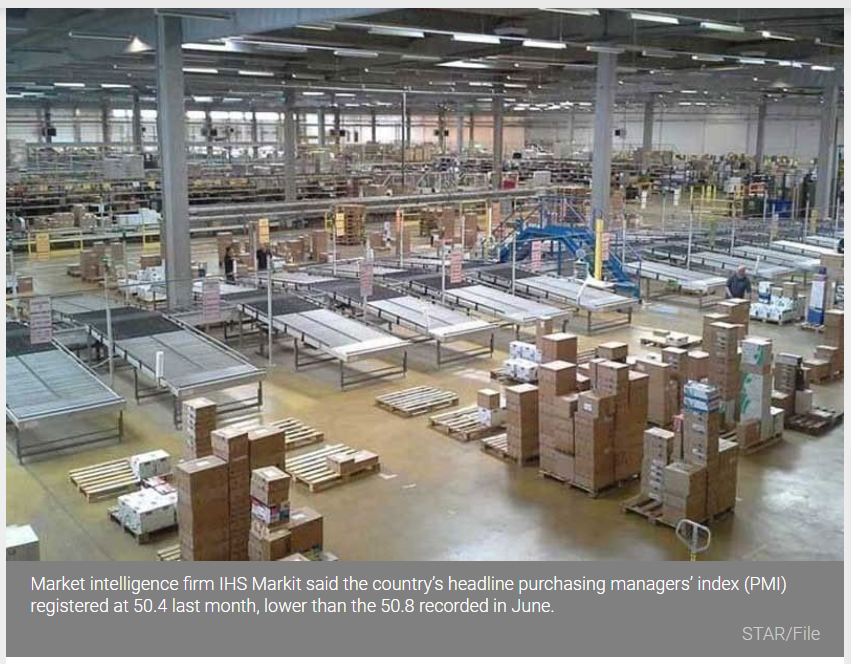Philippines: Manufacturing slows in July
MANILA, Philippines — The country’s manufacturing sector slowed down in July as threats of the COVID Delta variant and other pandemic-related restrictions continue to weaken demand.
Market intelligence firm IHS Markit said the country’s headline purchasing managers’ index (PMI) registered at 50.4 last month, lower than the 50.8 recorded in June.
Despite the slowdown, July’s headline index still managed to register above the neutral 50 mark that separates expansion from contraction.
The headline PMI provides a quick overview of the health of the manufacturing sector based on the weighted average of five indicators: new orders (30 percent weight), output (25 percent), job creation (20 percent), supplier delivery times (15 percent) and inventories (10 percent).
IHS Markit’s latest reading revealed only a modest expansion in operating conditions across the country, with declines in output and new orders persisting last month.
This developed as the more transmissible Delta variant hit neighboring Southeast Asian countries such as Indonesia, Malaysia and Thailand.
In mid-July, the Philippine government confirmed the first local Delta transmission in the country.
“Domestic demand and production levels were still impacted by the pandemic. Case numbers have moderated somewhat from earlier on in the year, but are far from under control, causing some restrictions to persist,” IHS Markit economist Shreeya Patel said.
“Encouragingly, vaccination efforts have provided a boost to the future outlook, in turn prompting input buying and rising stock volumes,” she said.
Production levels and new orders on the domestic front are still on a decline, although modest, as firms struggled to obtain new orders largely due to the pandemic and still frail demand.
But new orders and demand from overseas markets continued to rise for the third straight month, aided by global economic recovery.
On the other hand, IHS Markit noted that firms continue to scale back on their hiring efforts, leading to the 17th consecutive month of contraction in employment, though the latest decline was the softest since March.
To mitigate delays and expectations of better demand in the coming months, producers added to their input inventory holdings in July. Pre- and post-production inventory also rose marginally.
On the downside, pressure remained on the supply chain due to both raw material shortages and virus-related restrictions that lengthened delivery times from suppliers.
Materials shortages and the introduction of value-added tax on some goods also extended the pressure on costs.
This prompted companies to raise the prices of their products to pass on some of the cost burdens to customers.
Factory-gate prices also rose during the month, of which the rate was faster than the long-run series average, but eased from June’s peak.
Nonetheless, firms remain optimistic about their overall prospects for higher production levels in the next 12 months, with business sentiment reaching a four-month high on hopes of greater demand.
But the degree of confidence is still below the long-run series average, suggesting that some firms remain wary of the longer-term implications of the pandemic.
“Domestic demand must improve throughout the second half of the year to help underpin growth in 2021,” Patel said.
Source: https://www.philstar.com/business/2021/08/03/2117117/manufacturing-slows-july


 Thailand
Thailand




